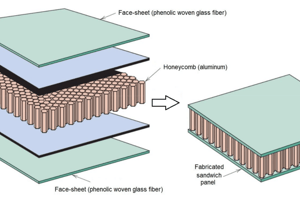Podcast
Questions and Answers
What does the term 'composition' refer to in materials science and engineering?
What does the term 'composition' refer to in materials science and engineering?
- The structure of the material
- The arrangement of atoms
- The chemical make-up of a material (correct)
- The performance of a material
What is the role of materials scientists and engineers regarding synthesis and processing?
What is the role of materials scientists and engineers regarding synthesis and processing?
- Making materials from naturally occurring or man-made chemicals (correct)
- Only focusing on the properties of materials
- Shaping materials into useful components
- Developing a deeper understanding of microstructures
What is the focus of materials engineering?
What is the focus of materials engineering?
- Establishing relationships between material properties
- Transforming materials into useful devices or structures (correct)
- Improving known materials
- Understanding the microstructure of materials
How does the structure of a material impact its properties?
How does the structure of a material impact its properties?
What is the goal of materials scientists and engineers?
What is the goal of materials scientists and engineers?
What is the difference between materials science and engineering?
What is the difference between materials science and engineering?
What happens to a pure copper wire when repeatedly bent?
What happens to a pure copper wire when repeatedly bent?
How can the microscopic changes in structure be observed?
How can the microscopic changes in structure be observed?
What is key to controlling a material's properties at a micrometer level?
What is key to controlling a material's properties at a micrometer level?
What was unexpectedly found in certain ceramic compounds based on yttrium barium copper oxides (YBCO)?
What was unexpectedly found in certain ceramic compounds based on yttrium barium copper oxides (YBCO)?
What was the first step in discovering superconducting behavior in ceramic materials?
What was the first step in discovering superconducting behavior in ceramic materials?
What is a limitation of the discovered ceramic superconductors mentioned in the text?
What is a limitation of the discovered ceramic superconductors mentioned in the text?
Flashcards are hidden until you start studying
Study Notes
Introduction to Materials Science and Engineering
- Materials science and engineering (MSE) is an interdisciplinary field that involves inventing new materials and improving existing ones by understanding the relationships between microstructure, composition, synthesis, and processing.
Key Concepts
- Composition refers to the chemical make-up of a material.
- Structure refers to the arrangement of atoms, observed at different levels of detail.
Roles of Materials Scientists and Engineers
- They develop new materials and improve existing ones.
- They deal with the synthesis and processing of materials.
- They are involved in manufacturing processes related to component production.
Synthesis and Processing
- Synthesis refers to how materials are made from naturally occurring or man-made chemicals.
- Processing refers to how materials are shaped into useful components.
Relationships Between Properties and Performance
- Materials scientists and engineers establish relationships between a material's properties and its performance.
- The structure of a material significantly influences its properties, even if the composition remains unchanged.
Microstructure
- Microstructure refers to microscopic changes in a material's structure.
- Understanding microstructure is key to controlling a material's properties.
Example: Ceramic Superconductors
- Ceramic superconductors were invented in 1986.
- These materials can carry electrical current without resistance under certain conditions.
- The discovery of superconducting behavior in ceramic materials was unexpected.
The Tetrahedron of Materials Science and Engineering
- The tetrahedron consists of microstructure, synthesis and processing, composition, and properties.
- These components are interconnected and affect the performance-to-cost ratio.
Studying That Suits You
Use AI to generate personalized quizzes and flashcards to suit your learning preferences.




